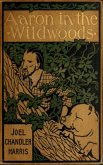Set in sultry New Orleans during the Civil War, Kincaid's Battery tells the story of a Confederate army artillery unit, Hilary Kincaid's Batteryor the ladies' men, as they are more teasingly known. The men's various romances with the women of the Big Easy, among other adventures, examine themes of hope, peace, and the nature of war.
Dieser Download kann aus rechtlichen Gründen nur mit Rechnungsadresse in A, D ausgeliefert werden.









